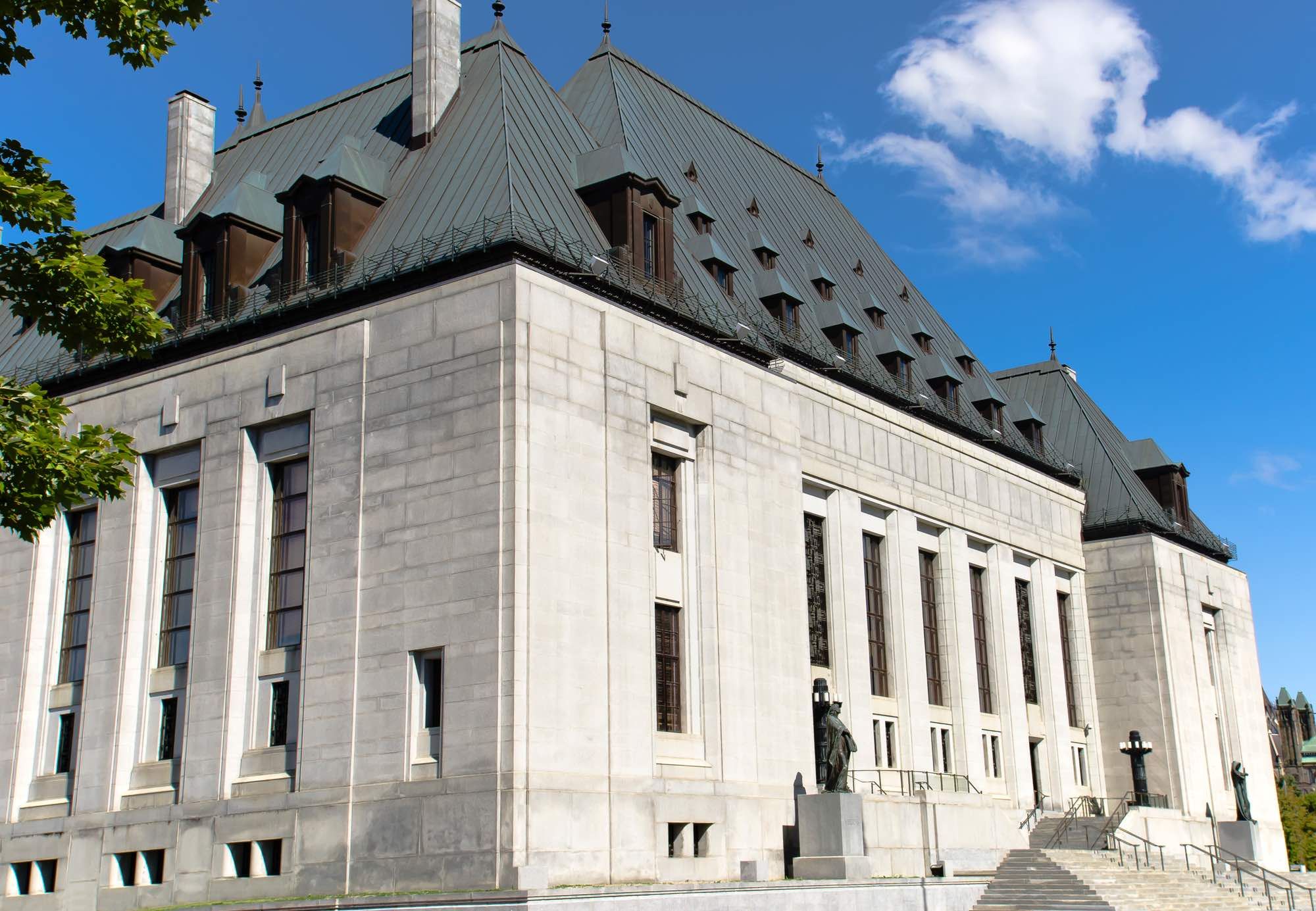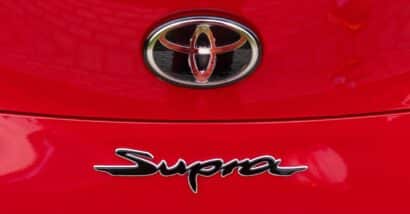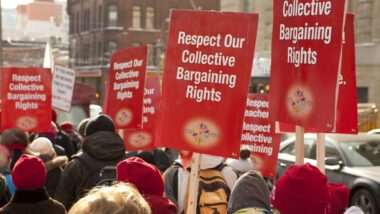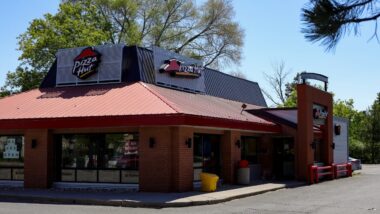A $400-million class action lawsuit against Uber can now go forward as the Supreme Court of Canada ruled in favour of Uber drivers Friday, holding that drivers can have labour issues resolved through Ontario courts. The Supreme Court’s eight-to-one decision also opened up the possibility for Uber drivers to be considered employees within the meaning of Ontario’s Employment Standards Act.
Uber Drivers: An Unequal Bargain
Plaintiff David Heller, a driver for Uber Eats, initiated a class action lawsuit against Uber in 2017, in an attempt to force the company to recognize its drivers as employees rather than independent contractors.
David launched the Uber driver class action lawsuit after he received a message on his cellphone asking him to accept changes to how he is compensated. David allegedly agreed to the changes because he was out on a delivery, and risked not getting paid if he had declined.
Uber won a stay of the proposed class action before the Ontario Superior Court because of an arbitration clause in the Uber driver work contract that requires all disputes between drivers and Uber to be resolved through arbitration in the Netherlands. The process would cost drivers US$14,500.
“There was clearly inequality of bargaining power between Uber and Mr. Heller,” according to the Supreme Court’s ruling.
David’s lawyer, Lior Samfiru, argued that “if the court agrees with Uber, then every company can have its workers sign a document that says the same thing.”
“That would mean that companies can do whatever they want with impunity.”
David was a licensed Uber driver in Toronto since February 2016, and earned between $20,800 and $31,200 a year before taxes and expenses. He would have clearly had to forfeit over half of his yearly salary to undergo Uber’s arbitration process.
Nonetheless, Uber maintained that arbitration is the right forum for deciding the validity of an arbitration agreement, and not the courts.

David’s lawyer said the Supreme Court’s decision has extensive implications for Uber and for the gig economy in general, by initiating discussions about whether people in the free market, such as independent contractors, are employees.
“The only way that we can even balance that inequality somehow is by giving individuals access to tribunals, like the labour relations board, or to our courts across the country,” affirmed Lior Samfiru.
Uber’s Arbitration Clause Deemed “Unconscionable”
Siding with Uber drivers, the Supreme Court held that Uber’s arbitration clause could not be held up in court, because it is unfair and oppressive, or “unconscionable” in legal terminology.
According to the Supreme Court, the extensive fees for initiating arbitration would likely prevent David’s challenge from being resolved through arbitration. The Court continued that as a result, the “validity of the arbitration agreement must therefore be resolved by the court.”
The Court examined whether there is an inequality of bargaining power between Uber drivers and Uber, and whether there is a resulting “improvident bargain.” The majority of the Court found that there was, indeed, inequality of bargaining power for the following reasons:
- The arbitration clause was part of an unnegotiated standard form contract;
- There was a significant gulf in sophistication between the parties; and
- Uber drivers could not be expected to appreciate the financial and legal implications of the arbitration clause.
“The arbitration agreement was part of a standard form contract and a person in H’s position could not be expected to understand that the arbitration clause imposed a US$14,500 hurdle to relief. The improvidence of the arbitration clause is also clear because these fees are close to H’s annual income and are disproportionate to the size of an arbitration award that could reasonably have been foreseen when the contract was entered into.”
The Supreme Court noted that a benefit of arbitration is that it is a presumably cost-effective and efficient method of resolving disputes. However, in this case, arbitration is realistically unattainable for Uber drivers, and the Court therefore declared that it can no longer be considered a dispute resolution mechanism.
Where Uber drivers can only vindicate their rights through an arbitration process that is out of reach, noted the Court, their “contractual rights are, as a result, illusory.”
Do you think Uber drivers should be able to assert their rights in Canadian courts or is the arbitration process suffice? Share your thoughts with us in the comments below!
David and potential Class Members are represented by Lior Samfiru.
The Uber Driver Class Action Lawsuit Supreme Court Decision is Uber Technologies Inc., et al. v. Heller, Case No. 38534, in the Supreme Court of Canada.
Read More Lawsuit & Settlement News:
Teacher Sexual Abuse Class Action Lawsuit Allowed to Proceed
Canadian Hockey League Hit With Class Action Alleging Systemic Abuse and Hazing
Long-Term Disability Lawyer | Insurance Claim Denial Help
Canada Roundup Glyphosate Cancer Class Action Lawsuit Investigation
ATTORNEY ADVERTISING
Top Class Actions is a Proud Member of the American Bar Association
LEGAL INFORMATION IS NOT LEGAL ADVICE
Top Class Actions Legal Statement
©2008 – 2026 Top Class Actions® LLC
Various Trademarks held by their respective owners
This website is not intended for viewing or usage by European Union citizens.















